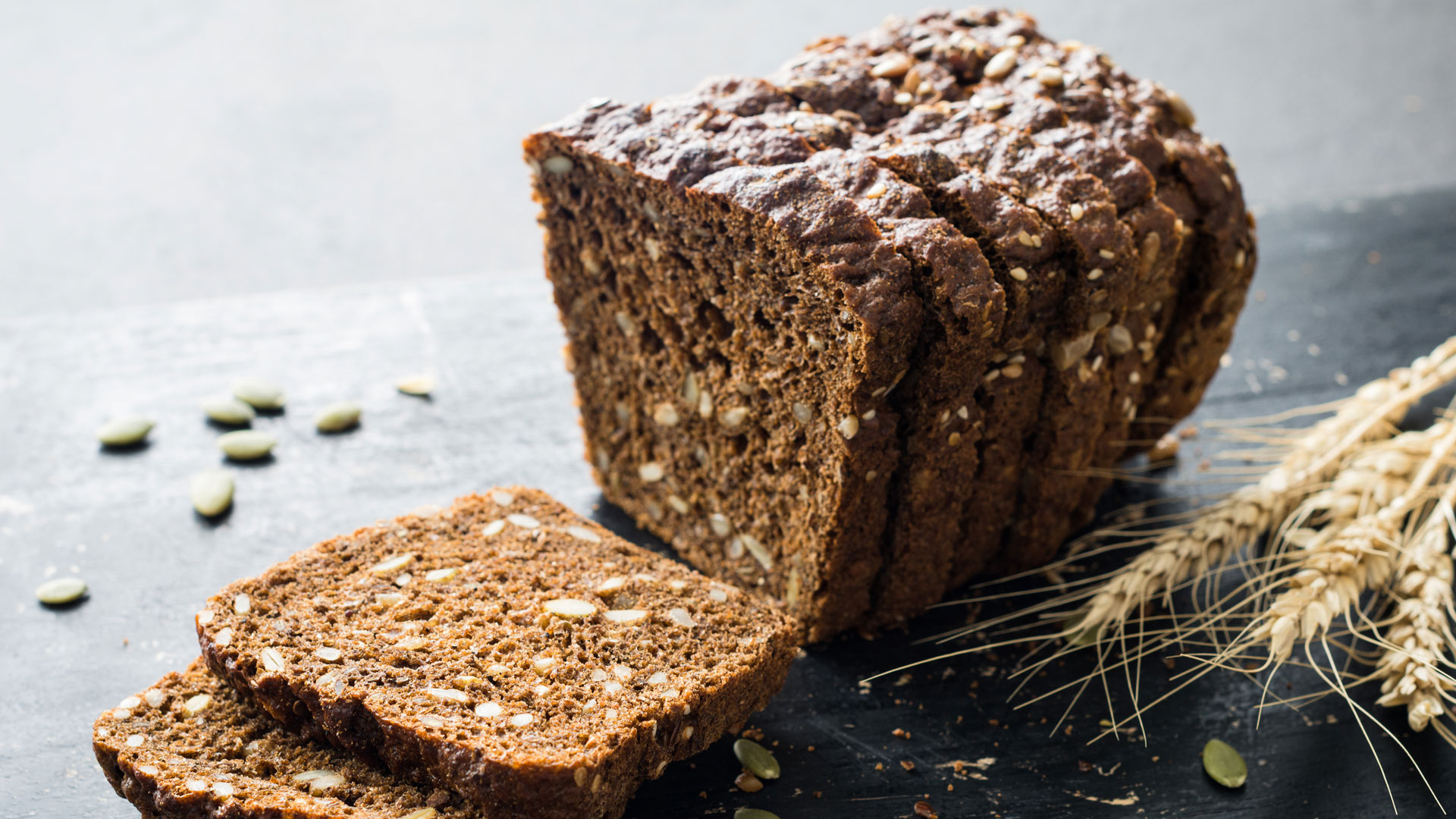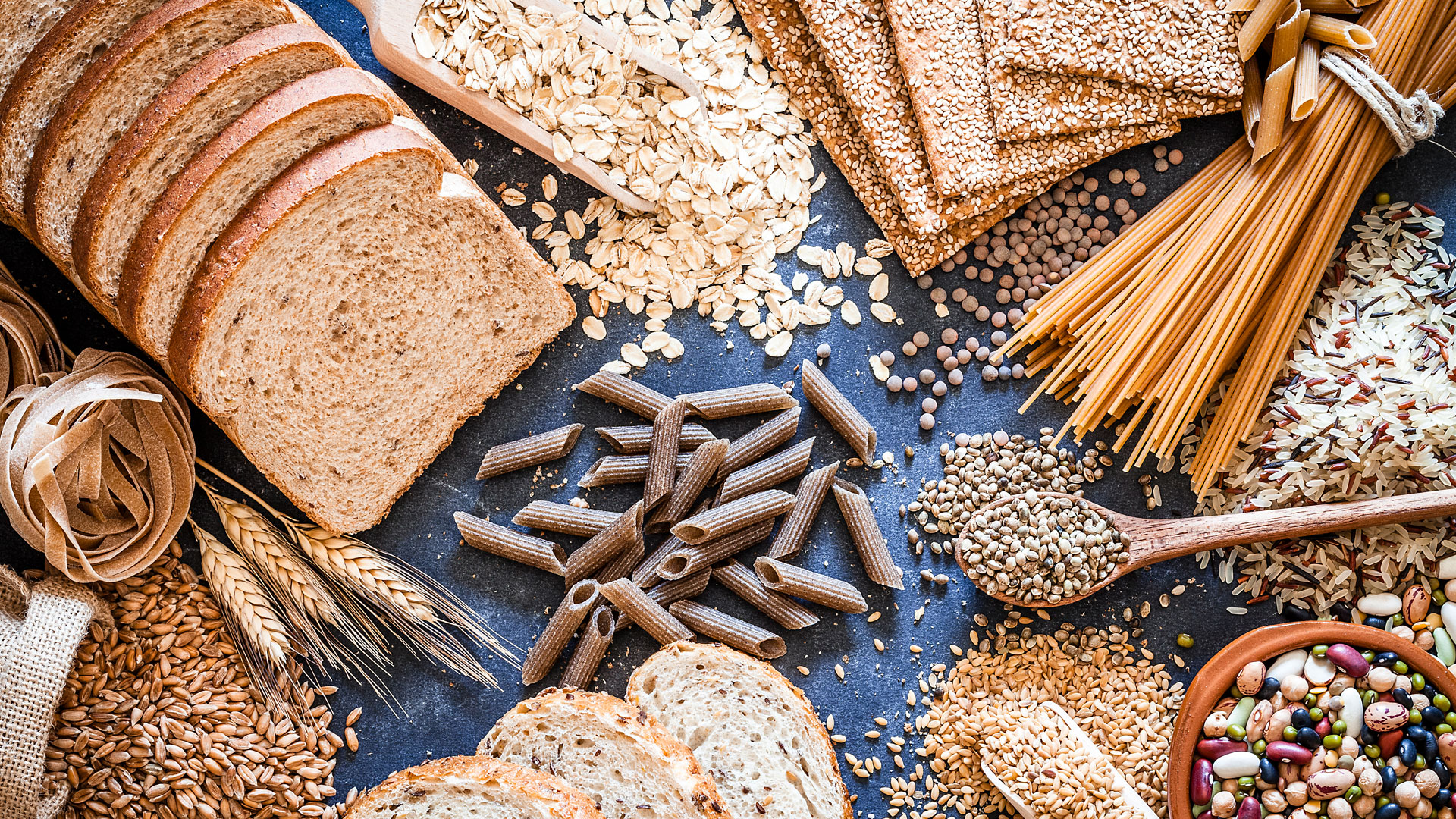Good carbs vs bad carbs: what’s the difference?
Here’s everything you need to know about good carbs vs bad carbs


There’s a lot of debate about good carbs vs bad carbs, while some people shun them altogether. Yet carbohydrates are one of the three macronutrients and play an important role in a balanced diet. They’re a vital source of energy for everything from everyday tasks to exercise. If you’re experiencing irritability and fatigue, those symptoms can be possible clues you’re not getting enough carbohydrates.
But not all carbs are the same. Complex, whole grain carbs are often rich sources of nutrients and fiber. On the other hand, simple, refined carbs can lack nutritional value and are linked to obesity and other health conditions.
Here, we uncover the myths and misconceptions surrounding carbs and ask the experts to unpack the good carbs vs bad carbs debate.
And if you’re looking into carb consumption for weight loss, focus on switching out simple carbs for complex, whole food alternatives. Don’t forget the exercise part of the equation — check out our guide to the best exercise machines to lose weight.
For now, let’s dig into the good carbs vs bad carbs debate.
What are carbohydrates?
So what exactly are carbs? “Carbohydrates are a key nutrient group (macronutrient) found in plant foods alongside proteins and fats. Carbs are found in a wide range of healthy and unhealthy food. They are your body’s premium fuel. They nourish your brain. They give you the energy to keep moving. Carbs power you through exercise by delaying the onset of fatigue,” says Dr. Shyamala Vishnumohan, Doctor of Food and Nutrition Science (Ph.D.), Certified Prenatal Dietitian, and Real Food Advocate.
There are three main types of carbohydrates: starches, sugars, and fiber. Starches include foods like grains, beans, and potatoes. Sugars cover naturally occurring sugars like fruits as well as processed foods like cakes. Vegetables are a great source of fiber, which the body does not digest but which are essential for gut health.
Start your week with achievable workout ideas, health tips and wellbeing advice in your inbox.

Good carbs vs bad carbs: is there such a thing?
There’s a lot of debate about good carbs vs bad carbs, but what do the experts have to say? “It’s important to remove the idea of food being ‘good’ or ‘bad’. Food is just food. There shouldn’t be a feeling that you’ve done something wrong by eating.” explains Amy Kimberlain, Registered dietitian and spokesperson for the Academy of Nutrition and Dietetics.
Dr. Vishnumohan adds: “It is all about balance and getting the right kind of carbohydrates while maintaining a healthy attitude towards eating.” Viewing certain carbs as bad can be unhelpful if it induces feelings of guilt.
Yet not all carbs are equal. Some offer greater health benefits than others. Rather than thinking about good carbs vs bad carbs, it can be instructive to distinguish between whole grain and processed carbs.
“Whole grains contain all parts of the seed (bran, germ, endosperm), whereas the refined grains only contain the endosperm. The whole grains contain the vitamins, minerals, antioxidants, protein, and fiber, whereas refined grains have much of that removed and then added back in or fortified,” explains Kimberlain. Opt for whole grain carbs like quinoa and rye bread that pack a nutritional punch. 2015 research published in JAMA Internal Medicine found that higher whole grain consumption was associated with lower mortality.
You can identify processed carbs as they often come in a lot of packaging and sport long lists of ingredients. They include foods like cake, pastries, white bread, and cookies. Processed foods are not only laden with sugar and preservatives but often lack nutritional value, in effect, empty calories. Consuming high volumes of refined carbs is associated with an increased risk of cardiovascular disease, according to 2021 research in Atherosclerosis.
Both whole and processed carbs are broken down into glucose for fuel. Yet a key difference with whole grains is that they are rich in fiber, which the body does not digest. “One of the main reasons why whole grains stand out as being better for you is their fiber content. Fiber has a unique role to play because we don’t digest it. And while many people associate fiber with a healthy digestive tract, fiber also helps us to feel full longer, manage blood sugar levels, reduce cholesterol and blood pressure, as well as possibly playing a role in weight management. Fiber is where it’s at!” adds Kimberlain.

How does the body break down carbs?
So how does the body break down carbs? Let’s unpack this. Carbs can be divided into two camps: simple and complex carbs. Simple carbs include foods like cakes, biscuits, and fruit, while potatoes, brown rice, and beans are complex carbs. Both types of carbs break down into glucose which provides energy. Simple carbs consist of shorter chains of sugars than complex ones according to the American Heart Association.
The difference is that the body breaks down shorter chains of simple carbs more quickly, resulting in a spike in blood sugar rather than slow-release energy. “Simple carbs are digested easily due to their molecular structure which can cause your blood sugar to spike,” explains Kimberlain. It’s a different story with complex carbs. “[They release] a steady stream of glucose that can ultimately lead to not only feeling fuller for a longer period but also provide sustaining energy,” she adds.
Choosing complex rather than simple carbs can help you feel fuller for longer. Dr. Vishnumohan gives an example of the difference: “Have you ever started your day with a muffin or breakfast cereal with low-fat milk and found you’re starving an hour later? Instead, try having a piece of wholemeal toast with eggs and avocado or a side of greens and notice how long you stay satisfied and full.”
Yet Kimberlain cautions that it’s not as black and white as simple carbs equating to bad and complex carbs as good. Each has its place. Fruits are an example of a simple, nutrient-dense carb that can be part of a balanced diet.
So, the good carbs vs bad carbs debate can be counterproductive as it can encourage an unhealthy relationship with food. Instead, focus on eating more complex, whole grain carbs while reducing your intake of simple, processed ones.
For more nutrition content, find out which foods build muscle.

Louise Bond is a UK-based writer specializing in health and wellbeing. She has over eight years of experience in management within health and care and brings this passion and expertise to her writing. Louise has been published in The Guardian, Live Science, Fit & Well, Tom’s Guide, T3, Top Ten Reviews, Planet Mindful, Breathe, and Psychreg. She is happiest when she is out in nature, whether that’s on an invigorating hike or pottering in the garden.